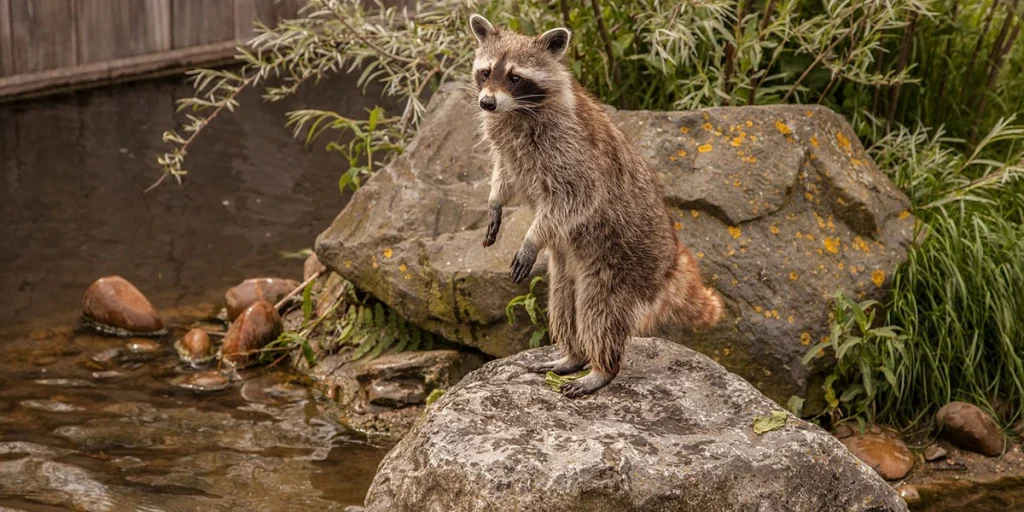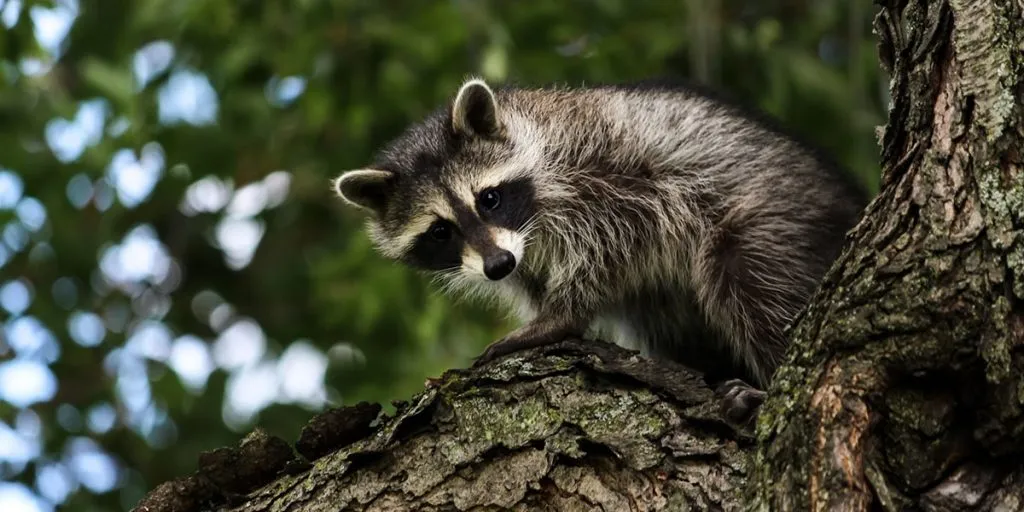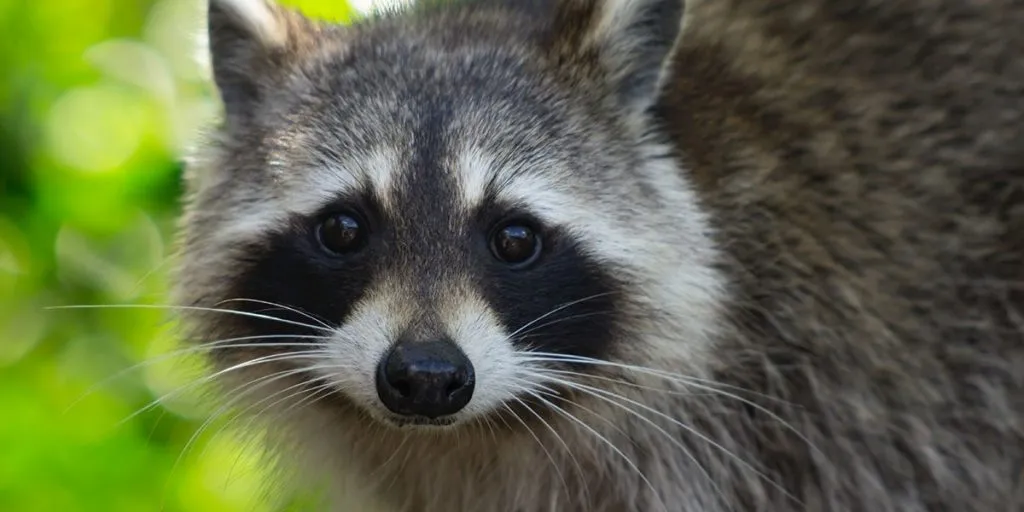Raccoons are animals that predominantly eat meat, and they prefer to hunt near water. While they will usually eat small prey like crayfish and snails, a raccoon will also hunt for larger prey where available.
In general, raccoons will only eat frogs when given the opportunity. Usually, they will choose to eat smaller frogs, tadpoles, and toads that live near water. Raccoons are avid tree climbers and will therefore also occasionally eat tree frogs.
Frogs have a wide variety of predators on the North American continent. Apart from raccoons, frogs are also commonly eaten by foxes, opossums, skunks, coyotes, otters, and water shrews.
Frogs Are Part Of The Raccoon Diet
Different from many other incidental animals they eat, frogs are actually an integral part of the raccoon diet. The aquatic animals are an important source of essential nutrients for the so-called trash panda.
Frogs contain a lot of protein, zinc, potassium, copper, manganese, and magnesium. They are also rich in vitamins and minerals, especially vitamin B in the form of folic acid and thiamin.
All of these elements are essential in a balanced raccoon diet. About two-thirds of their food consists of prey. When a raccoon is able to grab a frog from a small pond before it manages to jump away, the animals will definitely do so.
What About Poisonous Frogs?
Despite being a nocturnal hunter, most raccoons have evolved to recognize which types of frogs can and cannot be eaten. This information is passed on between raccoon families from generation to generation.
Mothers go out with baby raccoons to hunt when they are bout 8 weeks old, and eventually, a frog or toad will be part of the ‘hunting lessons’. The litter will naturally keep hunting the same type of amphibians their mom has taught them to eat.
While various poisonous frogs exist in the USA, these will not commonly share a habitat with raccoons. If they happen to cross paths with a raccoon, their obvious color patterns will be enough to keep them safe. While it can happen that raccoons eat poisonous frogs, it is not very common.
Raccoons Usually Hunt Near Water
The main reason raccoons tend to specifically eat frogs is explained by the way they hunt. They prefer to do this near bodies of water. Preferably in the vicinity of trees where their dens are located. They usually use their sensitive paws to grab small critters in or near the water.
In a natural environment, this is how the raccoon collects its daily meals. Sleep in the tree, go to the local lake or pond to hunt for small animals. These usually tend to be small invertebrates, but can also be slightly bigger vertebrates like amphibians (these include frogs and toads).
Toads and frogs are on the menu during a hunting session, but they are definitely not a priority for the raccoon. That honor goes to small water lizards, snails, and crayfish. Animals such as these are easier prey and will therefore more often be consumed by a raccoon.
An Opportunistic Omnivore
While the raccoon will eat frogs on a semi-regular basis, they are only a small part of their overall diet. Raccoons are not true carnivores, even though the majority of their overall diet consists of small prey. Instead, they should be considered omnivores: an animal that has to eat both meat and plants to get all their nutrients.
Next to meat, a raccoon will consume any edible substance it can find. They are true opportunists, often foraging the urban environment for food leftovers in trash cans. In the natural environment, they tend to eat acorns, berries, eggs, and even tree bark.
While finding prey near water is the preferred hunting method for a raccoon, it is not the only one. A raccoon will also hunt for snakes, rodents, squirrels, insects, as well as various dead animals (including roadkills). They are not particularly agile or efficient hunters. Therefore, they will only hunt, kill and eat these animals if given the opportunity.



